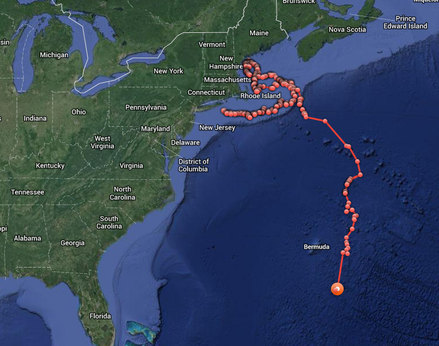| The guy who won the overall Yahoo! Tournament Pick'em contest (Robert's Rad Bracket, #1 out of tens of thousands) picked 54 games right, and so he got 9 games wrong. But all 9 of those misses basically came in the first round of the tournament (because he had Iowa State winning 2 games, even though they lost to UAB in the first round). After the first round of games, Robert was probably even in the bottom half of his own small pool of friends. But he didn't miss another pick. After the first round, Robert won every possible game remaining. With Duke's win last night, he made 30 straight correct picks. The unadjusted odds are on the order of 1 in a billion. |
What must that be like? It has never happened to him before. It will never happen again. Like throwing a fist full of coins in the air, and having them all land heads up. It must have been a moving religious experience that he'll analyze and interpret for the rest of his life. As if he played a specific and important role in the machinations of the cosmos. How nice for him.
Incidentally, my wife named her bracket "B. A. Barackets" because she thinks she's so clever and whatnot. And of course she took first place in our pool of friends, because the cosmos' plan for me is to eat crow for a couple weeks.









 RSS Feed
RSS Feed
